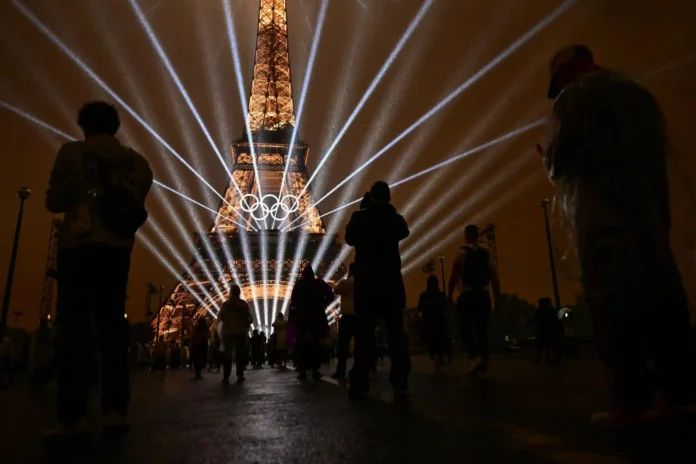
Paris, July 27, 2024 — France achieved a momentous feat on Saturday as it successfully executed the opening ceremony for the 2024 Paris Olympics, a spectacle that had initially drawn skepticism for its audacious nature and risky location.
The event, held on the River Seine instead of a traditional stadium, marked a bold decision by President Emmanuel Macron and underscored a commitment to grandeur and innovation.
Despite facing significant obstacles, including disruptions to the French railway network and inclement weather, the ceremony unfolded with remarkable flair.
The day commenced with troubling news of three attacks on signal infrastructure within the railway system, causing anticipated travel disruptions and raising concerns of a coordinated effort to undermine the Games.
These incidents cast a shadow of uncertainty over the event, but Paris remained resolute.
Adding to the challenges, a sudden and unseasonable downpour drenched the ceremony’s participants and audience alike. Performers, athletes, and spectators, clad in plastic ponchos, braved the adverse weather as the show continued unabated.
The downpour, while inconvenient, did little to dampen the spirits of those involved.
Director Thomas Jolly’s four-hour presentation culminated in a breathtaking finale. The Olympic flame was elevated into the sky via a balloon-tethered cauldron, while renowned singer Celine Dion performed an Edith Piaf classic from the Eiffel Tower.
This dramatic conclusion provided a fitting climax to an evening that defied expectations.
The ceremony’s approach, while unconventional, received mixed reviews. The Times of London labeled the event “surreal” and a “damp squib,” but it was also praised for its originality and ambitious scope. Jolly’s vision, though polarizing, was undeniably bold, offering a unique experience that diverged from the conventional norms of Olympic opening ceremonies.
As the ceremony concluded, Parisians and visitors could finally enjoy a reprieve from the extensive security measures that had dominated the city in the days leading up to the event.
The extensive security lockdown of the riverside embankment and the requirement for QR codes to pass through police barriers were lifted, allowing the city to return to its more familiar rhythm.
The successful execution of the opening ceremony, despite the myriad challenges, stands as a testament to the resilience and creativity of the French organizers.
With the grand spectacle now behind them, attention turns to the forthcoming events of the Paris Games, which promise to continue the spirit of innovation and excitement that characterized the opening.
In sum, the 2024 Paris Olympic opening ceremony will be remembered not only for its daring and originality but also for the city’s ability to overcome significant hurdles, ensuring that the Games began with a dramatic and unforgettable start.